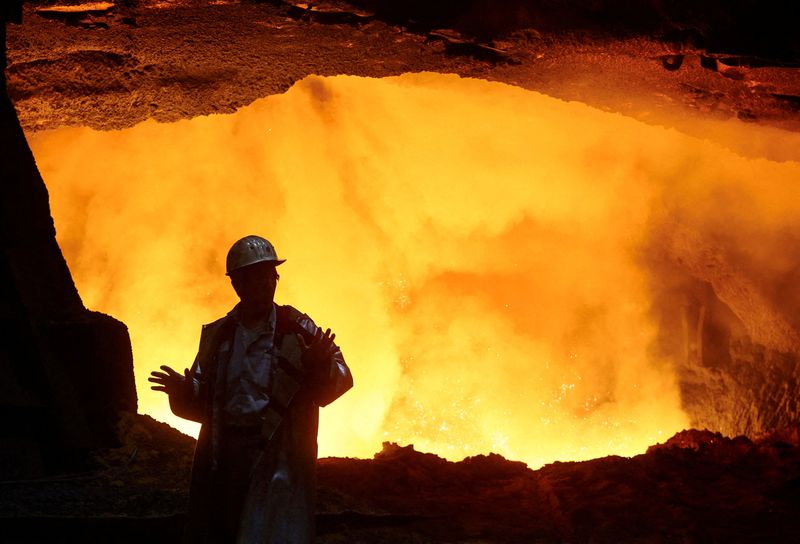BERLIN (Reuters) - Germany's manufacturing sector, which accounts for about a fifth of its economy, remained mired in a downturn in September on weak demand and rapidly falling output, a survey showed on Monday.
The HCOB final Purchasing Managers' Index (PMI) for manufacturing rose to 39.6 in September from 39.1 in August, below the 39.8 of the flash estimate and still far below the 50 level separating growth from contraction.
Output fell at the fastest rate since May 2020 - when the COVID-19 pandemic was hammering business activity worldwide - amid a further sharp drop in new orders, the survey showed.
Reports from surveyed businesses highlighted a number of headwinds to demand, including customer uncertainty, widespread efforts to reduce stocks and weakness in construction activity.
Weaker demand across the sector meanwhile fed through to lower prices, with September seeing further declines in both input costs and output charges, according to the report.
"The HCOB Manufacturing PMI of Germany is still signalling a quick slide downhill in terms of output. Nevertheless, we see glimmers of hope that the sector is starting to turn the corner," said Cyrus de la Rubia, Hamburg Commercial Bank (HCOB) chief economist.
He explained that in past phases of weak growth or recessions, the new orders index stayed in contractionary territory for less than two years and after that, it moved above 50, signalling growth again.
"As of today, the new orders index has been below 50 for 18 months. Therefore, there is a decent shot that the order situation will start to improve by the start of next year," de la Rubia said.

This optimism hasn't reached good producers yet though. In September, they were more pessimistic about the outlook and trimmed workforce numbers accordingly.
Nevertheless, the rate of job losses remained modest, the report showed.